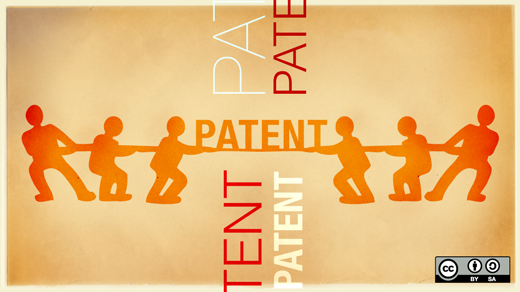It bothers many of us everytime we hear about yet another non-obvious, overreaching, and abusive patent—particularly a software patent that is getting in the way of innovation and creativity. Additionally, there is an overwhelming sense of frustration when a regular citizen can't do much to change the current, sad state of affairs.
There is however, at our reach, a tool that can change it all: defensive patent publications. Any one can submit one to the US Patent Office to officially establish the existence of prior art in any field.
A defensive publication makes it clear that the idea is currently known to a "person having ordinary skill in the art", PHOSITA, and is a formal way of establishing prior art in such a way that the patent office will not award future patents for inventions on that pre-existing idea. Defensive patent publications are very easy to write, usually only about two pages long, and are not subject to the requirements that the idea has to be new, useful, or non-obvious. On the contrary, the publication is stating that the idea is a trivial one for a person with background in the field.
In Fall 2012, the Linux Defenders, from the Open Invention Network (OIN), teamed with the students of the Open Source Software Practices class at Rensselaer Polytechnic Institute (in Troy, NY) to write a set of defensive patent publications.
The students in the class first went through four lectures on the history and nature of patents, one of them given directly by Andrea Casillas, director of the Linux Defenders program at OIN. After this training, each one of the students wrote a defensive patent publication on a topic close to a class project that they were already working on.
Members of OIN guided the students at every step of the process, providing instructions on how to write the publications and leading them to the finished product that was ready to be submitted to the US Patent Office.
The topics were very diverse, including for example:
- relativistic time keeping
- multiple copy pasting
- multi-factor authentication
- storing arrays for expedient lookup
- remote delegation of credentials
The exercise was done as a homework assignment and only took two days. From a group of 27 students, this exercise resulted in 14 defensive patent publications actually being submitted to the US Patent Office through the IP.com system.
Coursework in colleges and universities
We advance that we could scale this approach to all the Computer Science and Software Engineering college programs in the country, by encouraging or requiring that engineering students do at least one defensive patent publication in the topic of their major during their college training.
This form of community service would achieve a dual purpose:
- students will learn about the nature of patents and the economic balance that should be examined before the government awards 20-year long monopolies
- a solid body of prior art will be established in every field, that will protect the continuous availability of public domain knowledge for the students to build upon nurture the creativity of the next generation
This action of self-defense requires a very low level of effort and can scale to have major influence in curtailing the damaging affects of the floods of trivial patents that the US Patent Office is awarding every year. Also, it is an active way of protecting the public domain, making it possible for the next generation to have a space in which they can cultivate innovation and creativity.







8 Comments